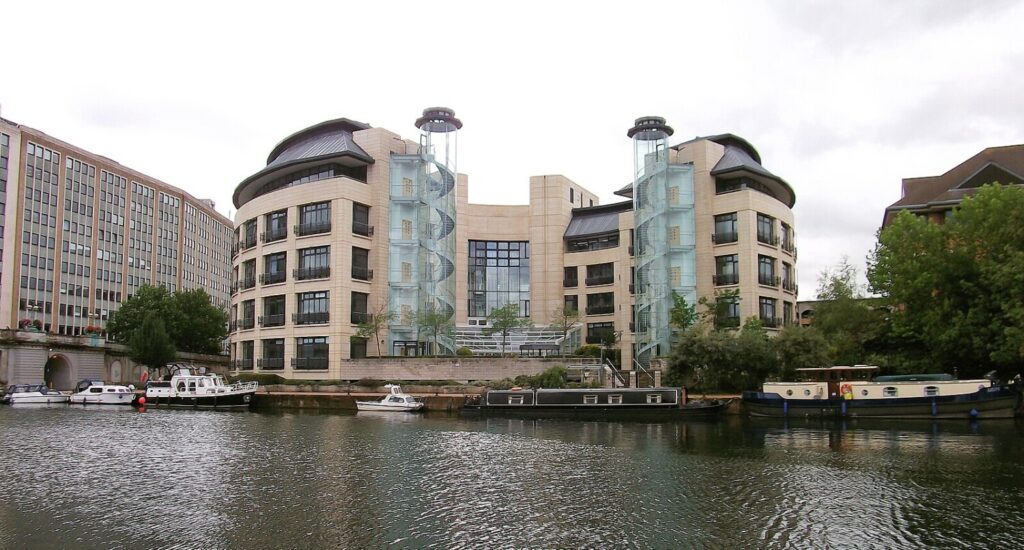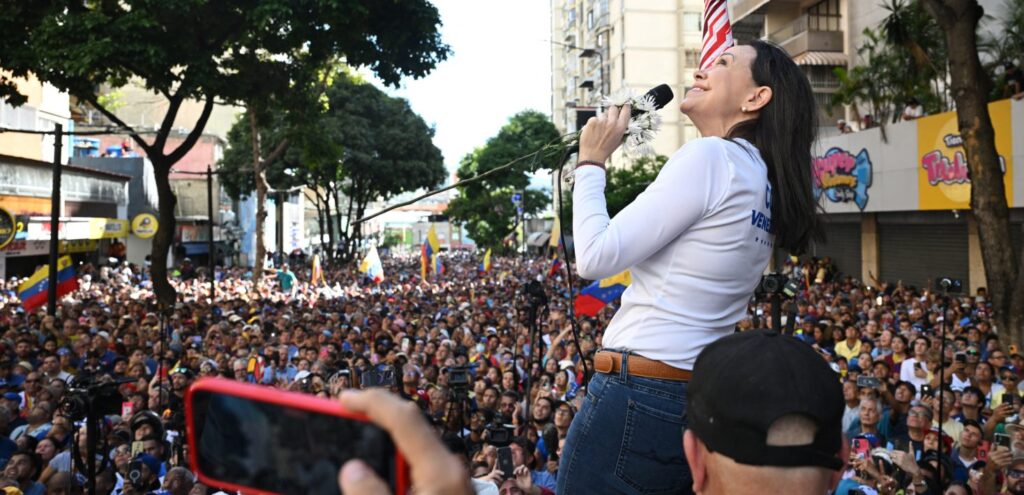Laïcité: Why French Secularism Could Spell Trouble For the EU
Laïcité’s History
Deeply rooted in the French legal system, laïcité is a principle in French law that closely resembles a form of secularism (Weill, 2006: 59). The principle is based on the separation of church and state, central to the country’s history and identity. Due to the 19th century struggle between the French government and the Catholic church, laïcité as a principle was enshrined into law in 1905 (Weill, 2006: 62). One could relate the system in a similar fashion to the secular system within the United States. However, in France, laïcité gave the right to believe, or not to believe, while at the same time keeping religion out of public affairs. The law prevents religion from being allowed in the public eye, thus preventing the French President from being sworn in on a holy book, banning nativity plays at state schools and most notably not allowing religious symbols to be worn in public places (The Economist, 2019). The merits of religious neutrality have included recognising a state’s sovereignty and, importantly, diversity and tolerance in belief and values (Dusan, 2015: 214, 220). However, laïcité in the last three decades has begun to gain controversy due to its utility creating the opposite effect.
Over the past three decades, France has been tackling the controversies that have come with implementing laïcité. The controversies have come from banning certain elements of religious expression and since the 1980s have shifted from a crackdown on Catholicism to one on Islam. Successive laws in 2004 banned state schools and public institutions from wearing “conspicuous” religious symbols including the Muslim headscarf. The legislation went further to increase its reach when in 2010 full face-coverings, including the niqab, were banned from all public places (The Economist, 2020). These legal acts followed the terrorist acts that followed 2015, including the Bataclan attacks and more recently the murder of Samuel Paty (Smith, 2020). Laïcité has been a challenge for many of France’s presidents, particularly in recent years, as recent successive governments have been accused of “weaponising” laïcité to the extent where it legitimatizes Islamophobia (The Economist, 2020). Emmanuel Macron, France’s current president, is having to deal with this same dilemma. He must find an approach that upholds French values, tackles Islamic extremism, and protects the rights and freedoms of Muslims in France (Onishi and Méheut, 2020).
Macron’s Shift to The Right
Emmanuel Macron has been viewed as a strong supporter and believer in the European Union, an institution that aims to promote human rights, freedom, and equality (Smith, 2020). Alongside a believer, Macron has also presented himself as an EU political leader, often pushing for more integration and a stronger European defence that could act independently to the United States (Erlanger, 2019). However, his views for Europe have not been mirrored nationally in France. The current French President is having to find a balance between upholding these values, whilst continuing to uphold laïcité. This need has been intensified by the attacks by Islamic extremists in the past several years that led to the downfall of Marcon’s predecessor François Hollande. Although there were other reasons for his loss of support, such as low unemployment, terrorism was the primary factor (Chrisafis, 2016). Macron is currently having to bring in new legislation that would infringe on the rights of Muslims and religious expression in the name of integration and assimilation. These infringements are said to be losing the support of his more liberal members (Michel, 2021).
At the same time, Macron is trying to appeal to the more right-leaning voters (France24, 2020). In recent months, the government has taken this approach by restricting the possibility of home-schooling children and creating a limited extension on laïcité (Solletty, 2021). These voters are currently being attracted by the far-right presidential candidate Marine Le Pen who in recent years has been trying to reinvent herself as a more moderate candidate, away from the past of her father and the old name of her party. The far-right presidential candidate has, in recent years, changed her attitude on a French exit from the EU (Mallet, 2020). Nevertheless, Le Pen remains firm on reforming the EU to provide more power to the nation-states and away from the path of closer cooperation and unity. Moreover, her stance on Islam has remained tough as she advocates to ban the headscarf in all public places (Oppenheim, 2021).
In a recent poll, 52% of French lycée (secondary education) students aged predominantly 15 to 18, as depicted below in below the graph, opposed the law banning religious symbols in public colleges (IFOP, 2021). A similar set of responses were provided by the lycée students on the public service agents and parents volunteering at school trips. However, French adults responded differently in the poll and saw the law in a more positive light. This information should be taken under consideration by Macron when promoting the principle and appeasing the more right-leaning voters (Diallo, 2021).
Source: IFOP, 2021
Le Pen’s Gains in the Polls
In recent months, Marine Le Pen has increased her popularity in the polls as Macron has been struggling to fight a new bout of Covid-19 infections within the country (Benoit, 2021). Experts and scholars say that a victory could be possible but not necessarily probable (Willsher, 2021). In January, a poll put the far-right leader of National Rally at ‘48%’ and was considered a threat to Macron (Bremner, 2021). The next election is a long time from now and in the past many candidates, who were in touching distance of the Elysée, have failed in becoming president.
Time is an asset for Macron if he uses it to prevent any further personal liberties from being infringed on by French law (Akyol, 2020). Overall, the controversies surrounding läicité, and the fight to prevent similar terrorist events that occurred since 2015, weaken EU leadership and a pro-European voice from the French Presidency (Ivaldi, 2018: 280). The EU is in danger of losing a pro-European voice if these controversies continue to occur.
Bibliography:
Akyol, M., 2020. Yes, Islam Is Facing a Crisis. No, France Isn’t Helping Solve It. Foreign Policy, [online] Available at: <https://foreignpolicy.com/2020/11/20/islam-facing-crisis-macron-france-laicite-secularism-not-helping-solve-it/> [Accessed 1 June 2021].
Benoit, A., 2021. France’s Le Pen Gains Ground for 2022 Elections, Poll Shows. Bloomberg, [online] Available at: <https://www.bloomberg.com/news/articles/2021-04-11/france-s-le-pen-gains-ground-for-2022-elections-poll-shows> [Accessed 1 June 2021].
Bremner, C., 2021. Poll puts Le Pen on 48% to threaten Macron for first time. The Times, [online] Available at: <https://www.thetimes.co.uk/article/marine-le-pen-closes-gap-with-macron-in-polls-nqdnfp7kl> [Accessed 1 June 2021].
Chrisafis, A., 2016. François Hollande will not seek re-election as president of France. The Guardian, [online] Available at: <https://www.theguardian.com/world/2016/dec/01/francois-hollande-not-seek-second-term-president-france> [Accessed 1 June 2021].
Diallo, R., 2021. How France’s far right is now dictating the terms of public debate. Washington Post, [online] Available at: <https://www.washingtonpost.com/opinions/2021/06/02/how-frances-far-right-is-now-dictating-terms-public-debate/> [Accessed 1 June 2021].
Erlanger, S., 2019. Macron Steps Into a Leadership Vacuum in Europe, and on Some Toes. The New York Times, [online] Available at: <https://www.nytimes.com/2019/11/01/world/europe/macron-france-eu.html> [Accessed 1 June 2021].
The Economist, 2019. France’s complicated relationship with Christmas. [online] Available at: <https://www.economist.com/europe/2019/12/21/frances-complicated-relationship-with-christmas> [Accessed 2 June 2021].
The Economist, 2020. What is French laïcité?. [online] Available at: <https://www.economist.com/the-economist-explains/2020/11/23/what-is-french-laicite> [Accessed 13 May 2021].
France24, 2020. French government unveils new law tackling Islamist extremism. [online] Available at: <https://www.france24.com/en/france/20201209-macron-seeks-cabinet-backing-for-new-law-tackling-islamist-extremism> [Accessed 13 May 2021].
IFOP, 2021. ENQUÊTE AUPRÈS DES LYCÉENS SUR LA LAÏCITÉ ET LA PLACE DES RELIGIONS À L’ECOLE ET DANS LA SOCIÉTÉ. « Droit au blasphème », laïcité, liberté d’enseignement…. [online] Paris: IFOP, p.6. Available at: <https://www.leddv.fr/wp-content/uploads/1_PPT_IFOP_LICRA_2021.03.02.pdf> [Accessed 1 June 2021].
Ivaldi, G. (2018) ‘Contesting the EU in times of crisis: The Front National and politics of Euroscepticism in France’, Politics, 38(3), pp. 278–294.
Mallet, V., 2020. Resurgent Marine Le Pen revels in Macron’s woes. Financial Times, [online] Available at: <https://www.ft.com/content/6d8b9c7a-412c-11ea-a047-eae9bd51ceba> [Accessed 1 June 2021].
Michel, L., 2021. Emmanuel Macron promised a new French liberalism. Now he’s crushing it. Prospect, [online] Available at: <https://www.prospectmagazine.co.uk/essays/emmanuel-macron-promised-a-new-french-liberalism-now-hes-crushing-it> [Accessed 1 June 2021].
Oppenheim, M., 2021. Muslim headscarves barred in all public areas in France under new measures proposed by Marine Le Pen. Independent, [online] Available at: <https://www.independent.co.uk/news/uk/home-news/marine-le-pen-muslim-headscarves-france-b1795112.html> [Accessed 2 June 2021].
Onishi, N. and Méheut, C., 2021. In a Charged Environment, France Tackles Its Model of Secularism. The New York Times, [online] Available at: <https://www.nytimes.com/2021/04/20/world/europe/france-secularism-laicite-macron.html> [Accessed 1 June 2021].
Smith, B., 2020. The President vs. the American Media. The New York Times, [online] Available at: <https://www.nytimes.com/2020/11/15/business/media/macron-france-terrorism-american-islam.html> [Accessed 1 June 2021].
Solletty, M., 2021. French minister spars with Le Pen over radical Islam. Politico, [online] Available at: <https://www.politico.eu/article/french-interior-minister-gerald-darmanin-and-marine-le-pen-spar-over-how-to-fight-radical-islam/> [Accessed 1 June 2021].
Weill, N. (2006). What’s in a Scarf?: The Debate on Laïcité in France. French Politics, Culture & Society, 24(1), 59-73.



